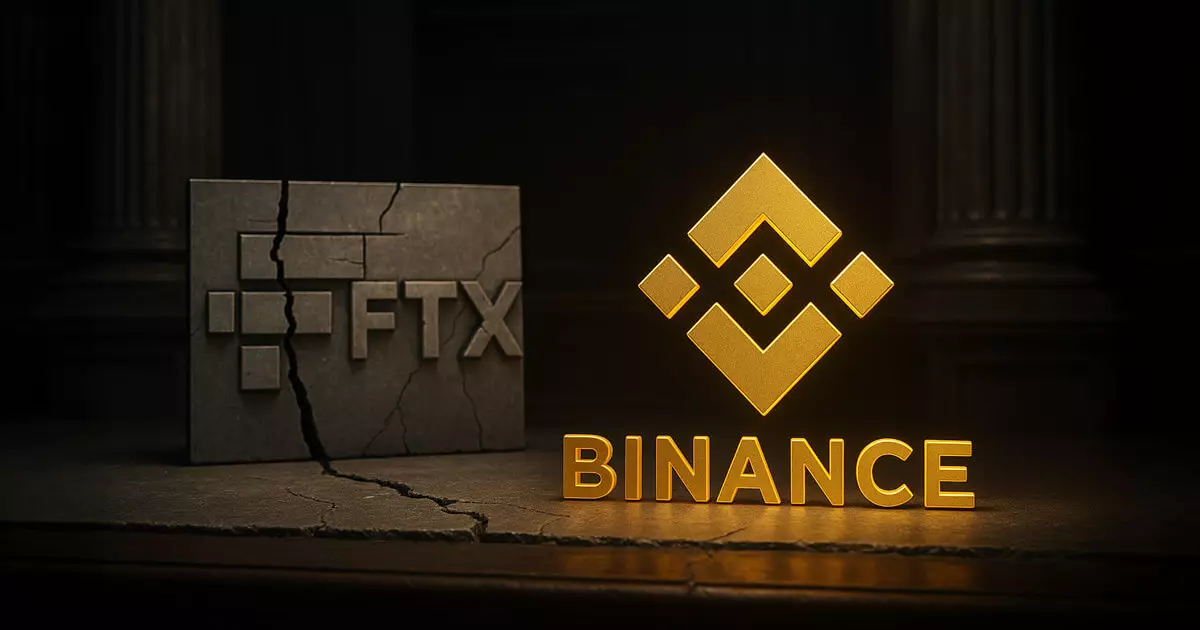In a high-stakes legal battle, Binance is pushing back against FTX’s audacious claim for $1.76 billion, arguing that the case simply doesn’t hold water within the confines of U.S. jurisdiction. The assertion that foreign entities can be brought to account in American courts over transactions governed by Hong Kong law raises questions about the very tenets of international legal standards. Binance highlights a critical point: none of the accused parties—most notably CEO Changpeng Zhao, known colloquially as “CZ”—have any substantial ties to the United States. This begs the question: how can a U.S. court adjudicate over actions and agreements made entirely outside its borders?
One might argue that FTX’s attempts to extend its reach into foreign halls of justice are alarmingly desperate. By attempting to frame Binance as a central player in its financial demise, FTX risks undermining the principles of fairness and justice that should govern these proceedings. The fact that the defendants are being painted as significant actors in FTX’s implosion seems less about accountability and more about deflection.
The Flawed Narrative of Insolvency
FTX’s claims regarding insolvency during the pivotal July 2021 transactions are equally questionable. Binance’s critique of these assertions is not only necessary but critical for a proper understanding of this financial unraveling. FTX appears to be walking a tightrope, positioning itself as a victim of circumstances while neglecting the realities of its own operations. If the company indeed teetered on the edge of insolvency, how could it possibly argue that value existed for damage recovery in November 2022?
This convoluted reasoning only seems to serve as another tactic for shifting blame. We must recognize FTX’s downfall as not merely a financial collapse but as a catastrophic fraud, one that has rent the fabric of trust in the crypto world. In projecting guilt onto Binance, FTX is evading accountability for the systemic failures within its own organization.
The Misrepresentation of Social Media Impact
Further complicating the litigation is the claim that Binance’s social media activity incited panic and a bank run. Accusations against Zhao’s tweets appear to be an exaggerated effort to pin liability on Binance. How can one foreign CEO’s expression on social media be deemed impactful enough to alter market conditions in a different country? Such convoluted logic borders on the absurd. The narrative being spun here misleads all involved, suggesting that Zhao is some sort of puppet master orchestrating chaos from a distance.
Binance rightly maintains that they acted within the confines of market risk when liquidating their FTT holdings, rather than with malicious intent toward FTX. This detail is crucial; crypto’s volatility alone can set off a chain reaction, and attributing blame to Binance for a market behavior that many traders might undertake seems both misplaced and misinformed.
In this tumultuous landscape, while FTX scrambles to bridge gaps in its own accountability, Binance stands firm in challenging the basis of these claims, rightly asserting that this legal battle is not only flawed but threatens the integrity of international law itself. This developing saga exemplifies how confidently wielding a narrative can often eclipse substantive truth, but the courts—and ultimately the markets—know better.

